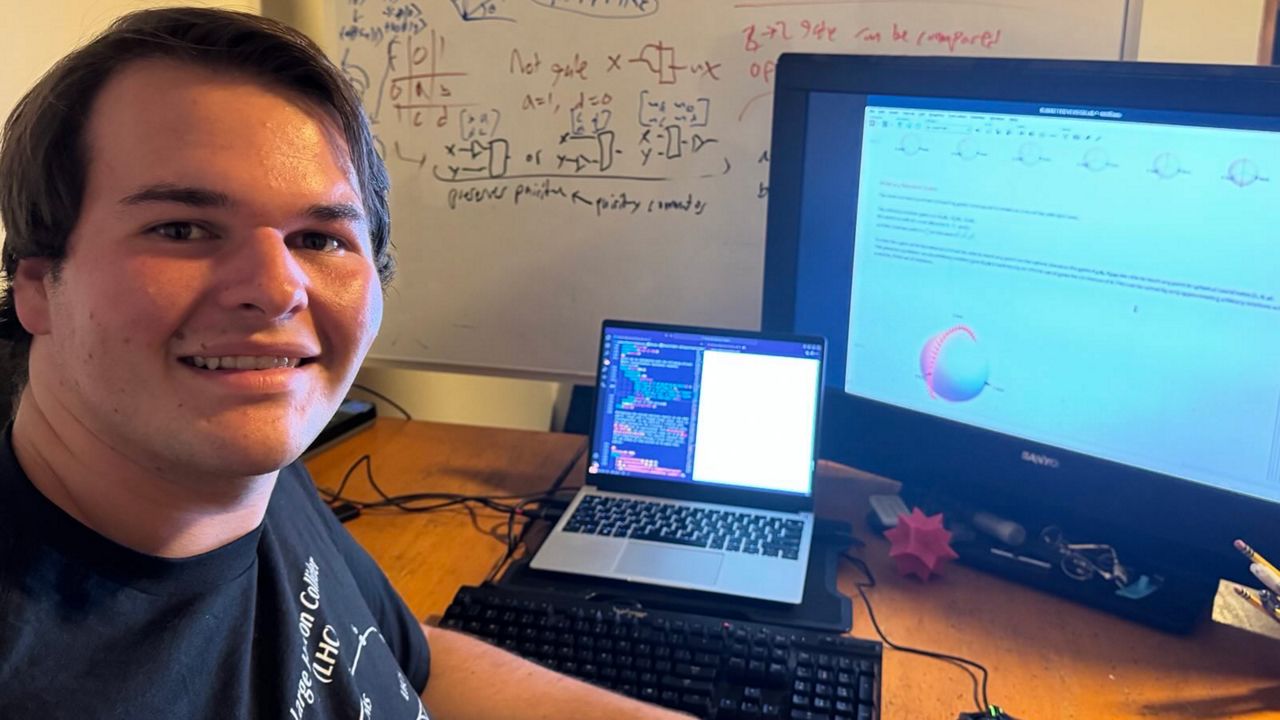CAMBRIDGE, Mass. –– A Massachusetts Institute of Technology student from Cumberland is receiving national recognition and a hefty scholarship for his research into quantum computers.
Christopher Gilbert, 19, has been awarded a $25,000 Davidson Fellows Scholarship.
The scholarship “recognizes, nurtures and supports profoundly intelligent young people, and provides opportunities for them to develop their talents to make a positive difference,” according to the Davidson Institute.
“I was so stunned,” Gilbert said. “I was, like, so excited, and I think I just immediately called my mom and ran up to the house yelling, ‘I won it! I won it!’ It was, like, unbelievable.”
Gilbert, a Greeley High School graduate, is a freshman at MIT where he is studying quantum computing. He said the subject has fascinated him ever since fourth grade, when he began watching videos on YouTube about quantum mechanics.
Quantum mechanics was developed primarily to help study subatomic particle physics.
“I was just amazed by how different and at times incomprehensible it is to me, like how strangely the world kind of works,” he said.
Quantum mechanics has since been applied to computing, with the goal of building faster computers.
Scientists can’t build quantum computers yet, Gilbert said. One of the barriers has been reducing the “error rate,” –– the number of mistakes a quantum computer would make.
Since high school, Gilbert has been studying how to reduce the error rate.
Eventually, Gilbert developed a way to build much simpler quantum computers and hopes his discovery will drive innovation toward the next generation.
“There are some very interesting problems that quantum computers show promise for, but we just haven’t been able to build them,” Gilbert said.
For example, Gilbert said, a great amount energy is spent creating ammonia-based fertilizers for crops. Scientists know of an enzyme in the bacteria in the roots of bean plants that would allow the world to produce the same fertilizer with comparatively less energy. Reproducing the enzyme, however, requires using computers to map out its molecular structure.
“We can’t model the enzyme,” Gilbert said. “It’s too big. It’s too complicated. Our best supercomputers can’t do it. So, stuff like that is where quantum computing will really shine.”
As to what the future holds, Gilbert said he hopes to continue studying quantum computing at MIT. He plans to do more research on the subject someday and maybe become a professor.
“I love to teach people,” he said.

